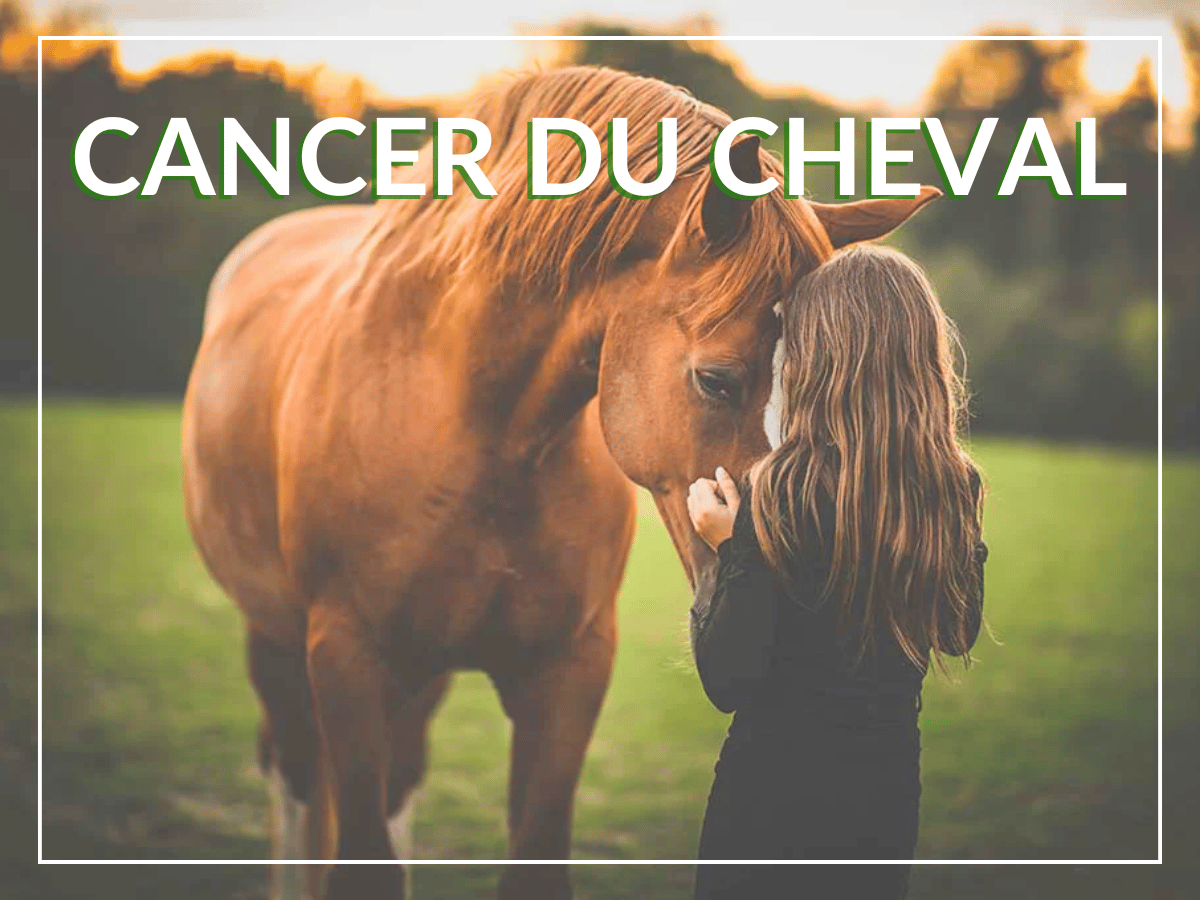
Throat Cancer in Dogs: Symptoms, Conventional Treatments, and Natural Remedies
Cancer in dogs is a difficult reality for any devoted pet parent to face. When it affects the throat—a vital organ for breathing, eating, and vocalizing—the symptoms can quickly become alarming. Persistent coughing, trouble swallowing, or changes in barking may be the first signs of a more serious issue.
In this comprehensive article, we help you better understand what throat cancer in dogs is, its causes, symptoms, available treatment options, and most importantly, how to support your dog naturally with gentle and complementary approaches.
- Click to learn more: 👉 Support your dog fighting throat cancer with our NATURAL product🐶
We’ve also prepared the Complete Guide to Cancer in dogs, which includes additional information on various types of canine cancer.
Because at HomeoAnimo, we believe every dog deserves a life that’s more comfortable, more peaceful... and longer.
What is throat cancer in dogs?
Throat cancer in dogs is a tumor that develops in the pharynx, larynx, or trachea. It can be a carcinoma, lymphoma, or fibrosarcoma, depending on the tissue affected. This type of cancer is relatively rare, but when it does occur, it can cause breathing difficulties and trouble swallowing.
It is often diagnosed at an advanced stage because the clinical signs may resemble other benign respiratory issues or infections. This is why it’s crucial to stay attentive to any change in your dog’s behavior or health.
What are the possible causes of throat cancer in dogs?

The exact causes of throat cancer in dogs aren’t always known, but several risk factors are suspected:
- Genetic predisposition: Some breeds, such as Giant Schnauzers, Saint Bernards, or Golden Retrievers, may be more susceptible to certain types of cancer.
- Exposure to toxic substances: Living in a highly polluted environment or prolonged contact with chemicals may play a role.
- Secondhand smoke: Dogs exposed to cigarette smoke are at a higher risk of developing certain cancers, including respiratory tract cancers.
- Age: As in humans, the risk of cancer increases with age.
What are the symptoms of throat cancer in dogs?

The symptoms of throat cancer in dogs can develop gradually, making early detection difficult. Here are the most common signs:
- Chronic or hoarse coughing
- Difficulty breathing (dyspnea)
- Changes in barking or voice
- Trouble swallowing (dysphagia)
- Loss of appetite and weight loss
- Excessive drooling or blood in the saliva
- Persistent bad breath
- Unusual fatigue
At the slightest concern, it’s essential to consult a veterinarian for a thorough exam.
What conventional treatments are available?

Treatment for throat cancer in dogs depends on the type of tumor, its location, and its stage of development. Here are the main conventional options:
- Surgery: If the tumor is localized, surgery may be considered to remove it. However, the location in the throat can make the operation complex.
- Radiation therapy: Used alone or alongside surgery, it aims to shrink the tumor and relieve symptoms.
- Chemotherapy: Less commonly used for this type of cancer, but may be considered for lymphomas or in case of metastasis.
- Palliative medications: Anti-inflammatories, painkillers, and corticosteroids may help manage pain and improve quality of life.
Are there natural remedies to support a dog with throat cancer?

Yes. While conventional veterinary treatments remain essential, several natural approaches can enhance quality of life, strengthen the immune system, and reduce side effects of treatments.
1. A proper diet: a foundational pillar
Targeted nutrition plays a vital role in supporting your dog’s overall health, especially during the battle against a serious disease like cancer.
Key tips:
- Favor natural antioxidants: turmeric, blueberries, broccoli, spinach.
- Provide quality omega-3s: fish oil (EPA/DHA), powerful natural anti-inflammatories.
- Limit carbohydrates: sugar can feed cancer cells, so a diet richer in protein and healthy fats is recommended.
- Choose soft textures: homemade purées, unsalted chicken broth, nutrient-rich wet foods.
2. Medicinal mushrooms: nature’s hidden strength
More and more studies show that certain medicinal mushrooms can support dogs with cancer thanks to their immune-modulating and anti-cancer properties.
Most promising mushrooms:
- Reishi (Ganoderma lucidum): reduces inflammation, supports liver function, and may inhibit tumor growth.
- Coriolus versicolor (Turkey Tail): rich in polysaccharides (PSK and PSP), known to stimulate immune response.
- Maitake and Shiitake: boost immunity and protect against secondary infections.
Some holistic veterinarians recommend using these alongside conventional treatment.
3. Herbal medicine: the power of healing plants
Certain plants are known for their ability to support the immune system and assist in the body’s natural detoxification process.
Useful herbs:
- Astragalus: boosts natural defenses.
- Echinacea: stimulates immunity and fights secondary infections.
- Burdock root: helps eliminate toxins via the liver.
- Milk Thistle: supports liver function, especially important during treatment.
💡 Always consult an animal health professional before using herbs to avoid interactions with other treatments.
4. Homeopathy: a gentle and targeted approach
Homeopathy can support the body’s natural ability to restore balance. Homeopathic remedies are free from side effects and are generally well tolerated by dogs.
These remedies can be part of a personalized care plan, tailored to the dog’s energy level, symptoms, and other treatments in progress.
5. Stress reduction: often overlooked, but vital
Chronic stress weakens the immune system and can accelerate the progression of many illnesses, including cancer.
How to soothe your dog:
- Maintain a reassuring routine: keep feeding, walking, and resting times consistent.
- Create a peaceful environment: a cozy space, soft lighting, calm music.
- Moments of connection: gentle petting, massage, non-verbal communication.
- Natural calming products: such as valerian, chamomile or soothing pheromones.
Summary
| Natural approach | Main goal |
| Balanced diet | Nourish properly, reduce inflammation |
| Herbal medicine | Support immunity and detoxification |
| Homeopathy | Stimulate the body’s natural healing capacity |
| Stress reduction | Soothe the dog and support emotional balance |
| Medicinal mushrooms | Boost immunity, slow progression |
⚠️ Natural remedies do not replace veterinary care, but they can play an important role in a well-rounded and individualized care plan.
A natural remedy for your dog

What is PIPTOANIMO?
The active ingredient in PiptoAnimo (cancer & tumor support) is the Piptoporus Betulinus mushroom, known for its exceptional immune-boosting properties. PiptoAnimo helps your pet maintain a strong immune system during its battle with cancer.
Did you know that the National Center for Biotechnology Information (NCBI) mentions that Piptoporus Betulinus has "demonstrated various biological activities against cancer cells" and that studies have "revealed anticancer properties" in this mushroom?
This product can be used alongside conventional treatments such as chemotherapy.
Many of our clients have used PiptoAnimo (cancer & tumor support) and were very satisfied with the results:
MARIELLA B. (Belgium) ⭐️⭐️⭐️⭐️⭐️
Miraculous!
Cancer? What cancer? 😃🥰
CHRISTIANE C. (France) ⭐️⭐️⭐️⭐️⭐️
Very satisfied with my exchanges with Homeoanimo! The treatments are of very high quality. I use Piptoanimo for my dog who has lung metastases, and she is doing very well! Great advice, always attentive. I’m truly happy to see her in good shape — I highly recommend Piptoanimo!!! Thank you, Homeoanimo!
What a relief and joy for them... and for us too!
What is the life expectancy of a dog with throat cancer?

Life expectancy depends on several factors, including:
- Type of tumor
- Stage at the time of diagnosis
- Response to treatments
- Overall condition of the animal
Without treatment, survival may range from a few weeks to a few months. With proper care (surgery, radiation therapy, natural support), some dogs can live several months or even over a year with a good quality of life.
What truly makes a difference is the attention you give your dog, the speed of diagnosis, and a well-balanced approach combining veterinary care and natural solutions.
In conclusion: What should you do if you suspect throat cancer in your dog?
If your dog shows worrying signs such as persistent coughing, breathing difficulty, or unexplained loss of appetite, don’t wait. Consult a veterinarian as soon as possible.
And if the diagnosis is confirmed, remember that you’re not alone. Between veterinary treatments, natural remedies, and emotional support, there are ways to improve your dog’s quality of life.
If you're concerned your pet may be suffering from a health issue, our Free Pet Health Recommendation can help. Our Natural Health Consultants will offer advice and guide you through the products and treatments best suited for your animal’s specific condition.



























Leave a comment
This site is protected by hCaptcha and the hCaptcha Privacy Policy and Terms of Service apply.